Cambodia's Tiny Opposition Fighting For Democracy In One-sided Vote
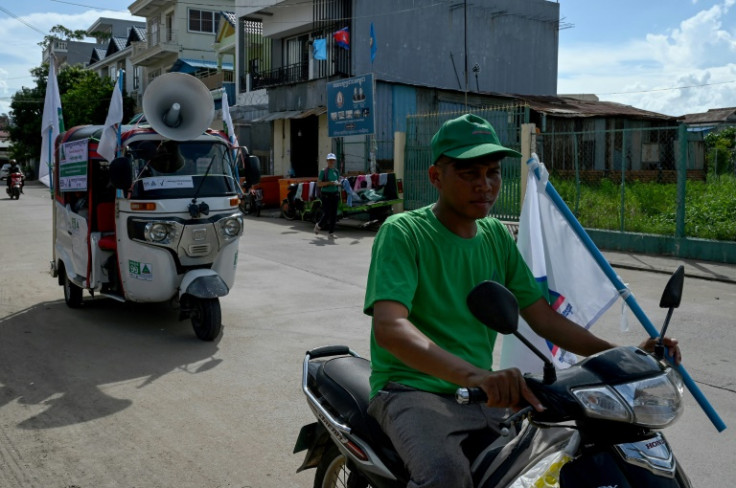
In white tuk-tuks kitted out with megaphones and banners, supporters of a tiny Cambodian opposition party wind down a dusty Phnom Penh street, rallying votes ahead of the country's one-sided election.
It will be a herculean task for the little-known Grassroots Democratic Party to win any seats in Cambodia's 125-member National Assembly at the July 23 election -- widely dismissed as a sham.
But party president Yeng Virak insists his team is fighting the good fight.
"We have a mission to restore democracy," he told AFP.
At the last national poll in 2018, Prime Minister Hun Sen's ruling Cambodian People's Party (CPP) made a clean sweep, winning every parliamentary seat after a court outlawed the opposition Cambodia National Rescue Party (CNRP).
This time around, the Candlelight Party -- the CPP's only credible rival -- was barred from running over registration technicalities.
"The future for the Cambodian opposition is dim," said Sebastian Strangio, author of "Hun Sen's Cambodia".
For the 17 remaining parties contesting the poll, it's difficult to compete against the deep pockets and long-entrenched power of Hun Sen's ruling party.
The prime minister has led Cambodia for nearly four decades, and critics accuse him of winding back democratic freedoms and using the court system to thwart political opponents.
Across the capital over the past week, CPP campaigning has featured musicians playing atop trucks and a rally with tens of thousands of supporters decked out in freebie T-shirts and hats bearing the party's logo.
The Grassroots Democratic Party's campaign, in contrast, is decidedly modest -- banners on motorbikes, social media posts and old-fashioned leaflets.
"We just want to try our best to reach out to the people," Yeng Virak said.
But since last year, the GDP has lost several senior party leaders to the CPP, including its former prime ministerial candidate, who took a government job.
The co-option of opposition politicians and activists has been a steady drumbeat over the years, with dozens making the leap to the ruling party in recent weeks alone.
Exiled opposition figurehead Sam Rainsy said it would be convenient for Hun Sen's government if a couple of minor parties won seats -- creating the appearance of democratic challengers.
But "if this happens, no one will be deceived that this is anything but a fig leaf and that Cambodia would still be effectively a one-party state," he told AFP.
Prominent trade unionist Rong Chhun, 54, who has served two stints in jail over his political activism, was a star recruit to the Candlelight Party in February before it was sidelined.
He was gearing up for the fight of his life -- pitting himself against Hun Sen, who has frequently threatened his opponents with jail and violence.
"Am I afraid of him? He is a Cambodian citizen, I am also a Cambodian citizen, so there is no reason that I have to be afraid of a Cambodian citizen," he told AFP.
But watching the campaign from the bench, Rong Chhun said it was wise to keep a low profile after eight party colleagues were recently attacked.
"When I walk around in Phnom Penh, I have to be very cautious. Thugs could use metal bars, sticks or stones to throw at us."
The Candlelight Party is unable to advocate a voter boycott because Cambodia's parliament recently passed legislation making it a criminal offence.
More than 30 years after a landmark peace agreement ended decades of bloody violence stemming from the genocidal Khmer Rouge regime, Cambodia's democracy is languishing, experts say.
"Cambodia is still incapable of creating a social and political situation conducive to holding free and fair elections. The polls held in such a situation would mean very little at all," said political analyst Lao Mong Hay.
Kem Sokha, leader of the now defunct opposition CNRP, was sentenced to 27 years of house arrest on treason charges in March and scores of others were convicted in a mass trial on charges including incitement and conspiracy.
Having led Cambodia for 38 years, Hun Sen has repeatedly declared that his eldest son Hun Manet will succeed him when he retires.
"It makes... Cambodia look more like North Korea than a genuine democracy," said Phil Robertson, Human Rights Watch's deputy Asia director.
But the ruling party remains unapologetic about Hun Sen's heavy-handed tactics and denies it conspired to exclude the main opposition.
"We don't care about any negative criticism against our leadership. As the saying goes: 'Dogs keep barking, but people keep walking'," CPP spokesman Sok Eysan told AFP.
Back on the hustings, some voters were unimpressed by the limited choices.
"I won't go to vote," a disgruntled tuk-tuk driver told AFP.
"Hun Sen is boxing alone in the ring."
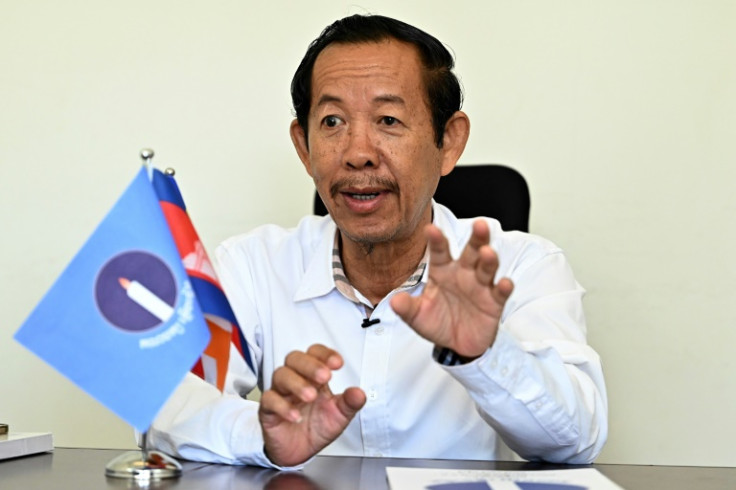
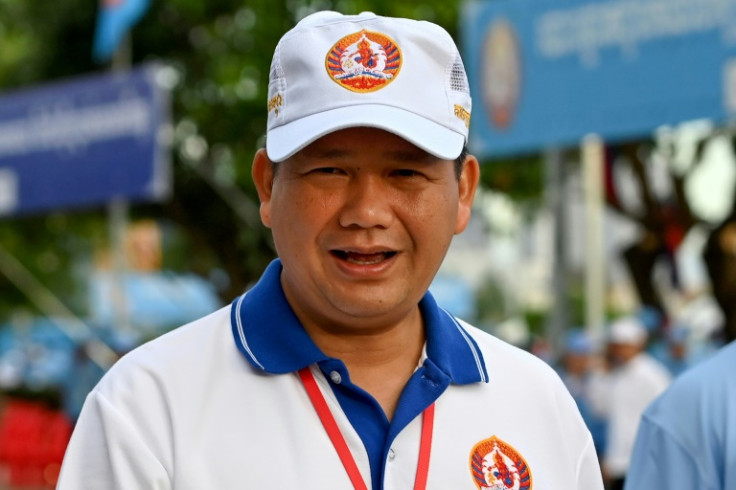
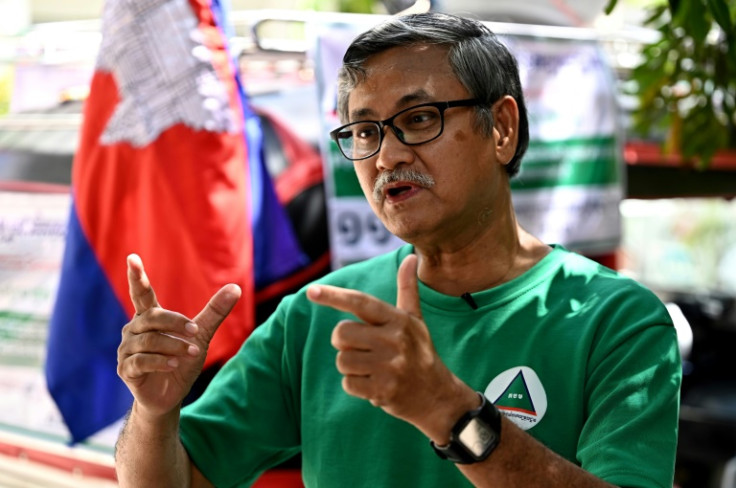
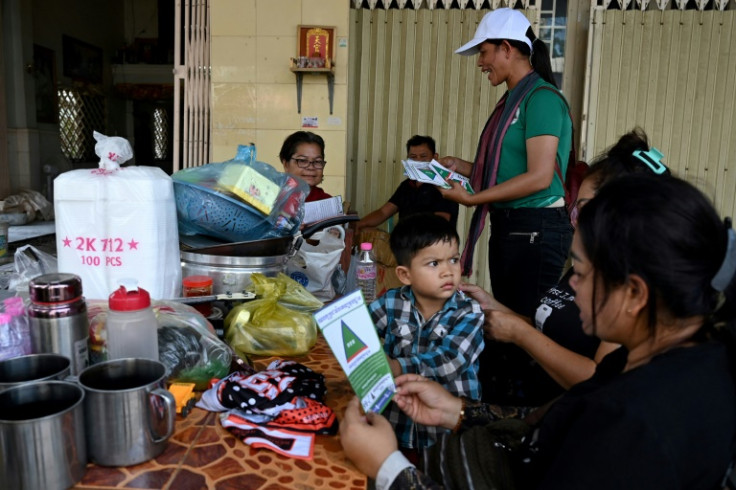
© Copyright AFP 2024. All rights reserved.





















